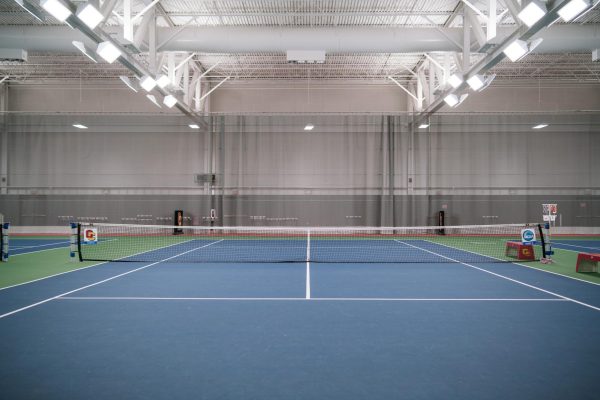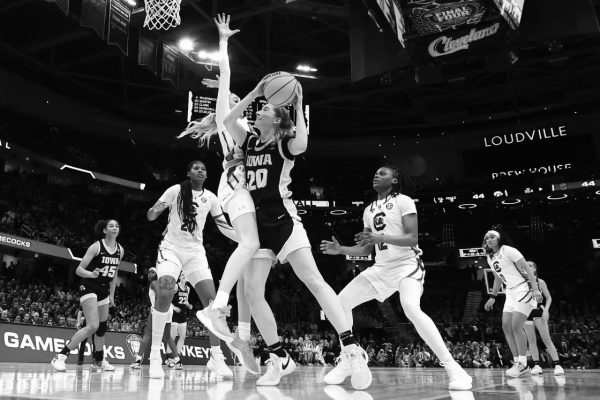US Gymnastics Must Address Sexual Assault
Last week, it was Harvey Weinstein. This week, it was Roy Moore. Yesterday, it was Al Franken. Throughout the past few weeks, it seems as if almost every accomplished, coveted, and powerful man in America’s public eye has been revealed as a sexual predator, demonstrating how much of the politics and culture we consume in our everyday lives are covertly tainted by manipulation, violation, and abuse. The outrage and shock of each new individual’s exposure as a sexual assailant is both natural and justified, but the recent surge in enraged responses implies that the issue of sexual assault perpetrated by professional men behind closed doors is an unprecedented problem. As we continue calling out the Harvey Weinsteins and Roy Moores of the world, it is equally as important to recognize the ways in which sexual assault has been pervasive for years in other aspects of American society — in the sports world and, more specifically, women’s gymnastics.
Professional gymnastics is one of the most hyped and celebrated sports at the Olympic Games every four years. With its dazzling routines and charming personalities, the U.S. Women’s Gymnastics Team retains insurmountable support, attracting volumes of publicity, attention, support. But behind the scenes the celebrated U.S. gymnasts have suffered countless violations on their paths to success, including horrifying accounts of sexual assault and abuses by team doctors and coaches. Most notable for his perpetration of assault was former USA Gymnastics team doctor Larry Nassar, who was sued by over 125 women — including U.S. national team gymnasts — and is currently imprisoned for more than 20 counts of criminal sexual conduct.
Accusations come from such gymnasts as Jamie Dantzscher, a member of the 2000 bronze medal-winning U.S. Women’s Gymnastics Team, as well as Aly Raisman and McKayla Maroney of the team that took home the 2012 gold. In a public hearing against Nassar in February, Dantzscher cited the many instances throughout her career when Nassar took advantage of her and left her feeling powerless. She explained that she “was abused all around the world” and “thought she was the only one.”
Maroney and Raisman recently added themselves to the list of women publicly proclaiming their experiences of sexual assault. On Oct. 18, Maroney posted on Twitter that Nassar began molesting her at age 16, as well as her teammates, under the guise that he was treating their medical ailments.
“It seemed whenever and wherever this man could find the chance, I was ‘treated,’” the tweet read.
Raisman made her public declaration in an interview with 60 Minutes last Friday, during which she credited Nassar’s lack of accountability and the silence of the gymnasts to the “culture of U.S. gymnastics” that scares young girls away from speaking up about their assault.
The idea that U.S. gymnastics culture promotes fear, silence, and abuse is not hard to swallow. In the sport, women are overwhelmingly small, young, barely clothed, and mostly coached and directed by men. Former gymnast Jennifer Sey described the sport’s natural inclination to abuse in a New York Times op-ed, citing the normalization of berating and belittling athletes, discouraging eating, and minimizing injuries; Sey argued that this dangerous culture of gymnastics is what holds young athletes back from reporting their abuse.
“There’s a message that if you can’t take it you’re weak … if you perceive it as abuse, you’re delusional,” Sey stated.
This June, U.S. gymnastics stated its plan to hear and implement new recommendations to its organization intended to improve the safety and wellbeing of young gymnasts throughout the country. The recommendations emerged from a report by sexual assault prosecutor Deborah J. Daniels, which cites flaws like the unclear process of reporting assault though complicated grievance reports, as well as the decentralization of gymnastics as a business, with lots of private, disconnected clubs and little accountability or awareness of coach or doctor malpractice.
Daniels’ recommendations include creating clearer protocols to document and investigate abuse complaints, as well as implementing strict and immediate consequences for adult violators. These implementations are undoubtedly necessary, but a noticeable change in the amount of abuse that emerges from gymnastics won’t occur until the sport as a whole undergoes a massive culture shift that involves more respect for gymnasts and their families, less silencing, more encouragement for gymnasts to speak out about misconduct, and a greater understanding of how young athletes deserve to be treated. Hopefully one day gymnasts won’t be applauded for their bravery to speak out about their sexual as





